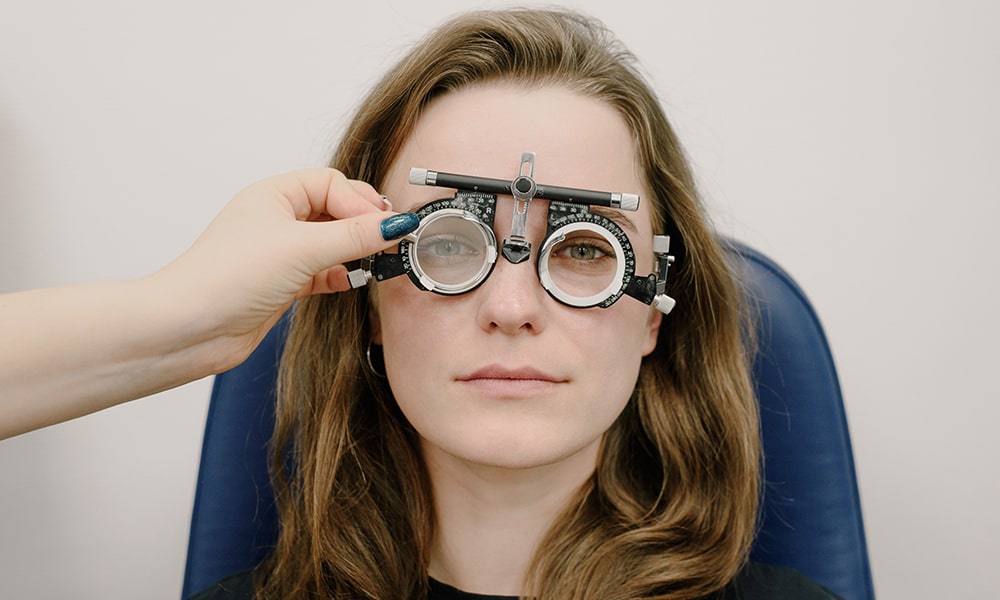Glasses designed specifically to treat macular degeneration
People with age-related macular degeneration (AMD) can benefit from glasses that are yellow-tinted or prismatic, as they can see more clearly with these lenses. In addition to improving contrast perception, these lenses can also change the angle of light in order to avoid problematic areas in your eyes.
There are a number of special glasses being developed for people who suffer from age-related macular degeneration. This article goes over some of these glasses and how they may be able to improve your vision.
AMD-compatible glasses
A variety of vision problems can result from AMD, from no problems at all to significant impairment of central vision. Specialized glasses can help you deal with these issues.
People with low vision can seek the aid of optometrists who specialize in providing them with appropriate glasses.
AOA reports that low vision services are commonly provided to individuals whose vision problems cannot be corrected with ordinary glasses, contact lenses, or surgical procedures. As defined by the American Optometric Association (AOA), low vision is a vision impairment resulting in a visual acuity of 20/70 or less.
According to the AOA1, people with severe vision loss that have been advised there is nothing that can be done to improve their vision can still benefit from low vision rehabilitation. The right glasses are one aspect of low vision rehabilitation that such specialists can provide.
You may be able to improve your vision by wearing glasses depending on the extent of your vision loss and the stage of AMD you are experiencing, as well as the symptoms you are experiencing.
AMD glasses for early-stage patients
The macula, which is responsible for clear central vision in the retina, is affected by AMD in progressive stages. You may have several small or medium-sized drusen deposits on your retina during early AMD, but you may experience no visual symptoms.3 At this stage, vision loss is usually not evident, such as blind spots or visual distortions.
It is possible to use progressive bifocals at this stage of AMD. Alternatively, your optometrist may suggest wearing two pairs of eyeglasses, one for distant vision and one for reading.
Sunglasses that provide protection
Your optometrist may recommend gray or brown-tinted sunglasses or transitional lenses to protect your eyes from blue light, which is present on bright, sunny days. The sun’s ultraviolet light, which may worsen macular degeneration, can be blocked by these sunglasses, which will help to reduce the risk of macular degeneration.5 The best sunglasses will have lenses that are 99% to 100% UV-blocking.
The lenses are made of polycarbonate
If you suffer from conditions such as macular degeneration, it will be especially important to protect your eyes from injury, especially if only one eye is able to see clearly. Glasses can also help keep irritants, such as flying insects, out of your eyes.
For additional protection against eye trauma, lenses made from polycarbonate plastic with a high index may be recommended.
Eyeglasses for the treatment of AMD in the intermediate stage
A person with intermediate-stage AMD may exhibit larger drusen and a greater number of medium-sized drusen. Under the retina is the retinal pigment epithelium (RPE), which consists of pigmented cells. In this stage of AMD, changes to the RPE may lead to loss of vision.
A person may experience subtle changes in their vision during the intermediate stage, or they may not experience any noticeable symptoms at all. A person may see small gray or black spots in the center of their vision. A person may experience difficulty adjusting their eyes to light that is bright or dim, as well as decreased contrast sensitivity (DCS). An object is discernible by contrast because of the difference in light intensity or color.
The effect of DCS is the appearance of colors that are faded and not as vivid or vibrant as usual. It may also result in the inability to distinguish between different hues of the same color.
In addition to not being able to see textures clearly, DCS may make it difficult to detect subtle changes in the environment. For example, it may be difficult to distinguish individual stairs or changes in pavement. This may increase the risk of falling.
During the early wet stage of AMD, there may also be a decrease in contrast sensitivity.
Glasses with a yellow tint
Those with intermediate-stage AMD may benefit from yellow-tinted glasses that improve visual contrast.
Coatings that are anti-reflective
Your field of vision can be brightened with the help of anti-reflective technology available in customized macular degeneration glasses.
By employing anti-reflective technology, the lenses of the glasses are able to minimize excessive light reflection on the glass. By using anti-reflective technology, more light can be transmitted through the lens. This results in brighter images than those produced with traditional lenses, which reduces the effects of DCS.
Eyeglasses for patients with late-stage AMD
As AMD progresses to late stage, vision loss can result. This can happen either with wet AMD or dry AMD.
There is a common term for wet AMD, which occurs when there are leaky blood vessels in the macula that lead to the deterioration of the macula. Wet AMD advances much more rapidly than dry AMD.
AMD causes loss of central vision as a symptom. Objects in the middle of the line of vision may appear blurry or distorted, or may not be visible at all if the condition is advanced. The peripheral field of vision (side vision) is usually still visible, although it may be difficult to identify objects in the peripheral field.
When the disease is at this stage, a person may observe visual distortions as broken or curving lines rather than straight lines. Symptoms may include gray or black spots in the central field of vision as well as difficulty recognizing faces in spite of the fact that peripheral vision is still functioning.
Special glasses can be utilized to improve vision in individuals who suffer from advanced wet or dry AMD. For reading, these glasses may incorporate magnification and a prism, whereas for distant vision, they may utilize a “bioptic” telescope. An advanced AMD person can gain a clearer view of objects from a distance using a bioptic telescope mounted on their glasses.
Lenses with a prismatic effect
Macular degeneration advanced stages are treated with prismatic lenses, also known as prism glasses with built-in prisms. The light rays that enter the eye are deviated by prismatic lenses. As a result, light rays avoid the deteriorated macular region as a result of AMD.
The prismatic lenses cannot eliminate the blind spots that people with AMD frequently experience, but they can reduce the amount of low vision, thereby reducing the blind spot.
Glasses with magnifying lenses
It is possible to magnify images with magnification glasses to improve distance vision. People who suffer from AMD can also wear special magnification glasses to improve their ability to see details up close, such as enlarging text when reading.
You can use distance-vision glasses as a means of improving central vision for items that are far away by mounting a special binocular-type lens, known as a bioptic telescope, on your glasses’ lenses. You can adjust the magnification level of the lenses based on your specific needs.
Despite magnification glasses’ ability to reduce blind spots and distortions caused by macular degeneration, these vision problems cannot be completely eliminated.
In summary
Your vision may be improved by special eyeglasses if you suffer from age-related macular degeneration. A person with AMD may only need lenses that correct normal age-related vision loss in the early stages, whereas later stages require yellow-tinted lenses, prismatic lenses, or magnifying glasses.
A low vision specialist—an optometrist who specializes in prescribing glasses for patients with low vision—can help you determine what glasses are appropriate for macular degeneration. As a result of their evaluation of your current symptoms and the stage of AMD, these specialists can provide you with the appropriate prescription for specialty glasses.
Furthermore, it is important to keep in mind that AMD is best diagnosed and treated early in order to slow down its progression.
It is essential that you follow your ophthalmologist’s advice regarding regular eye exams and screenings in order to help manage the symptoms of macular degeneration. Eyeglasses for macular degeneration can help to manage your symptoms, but they cannot cure your disease.
















